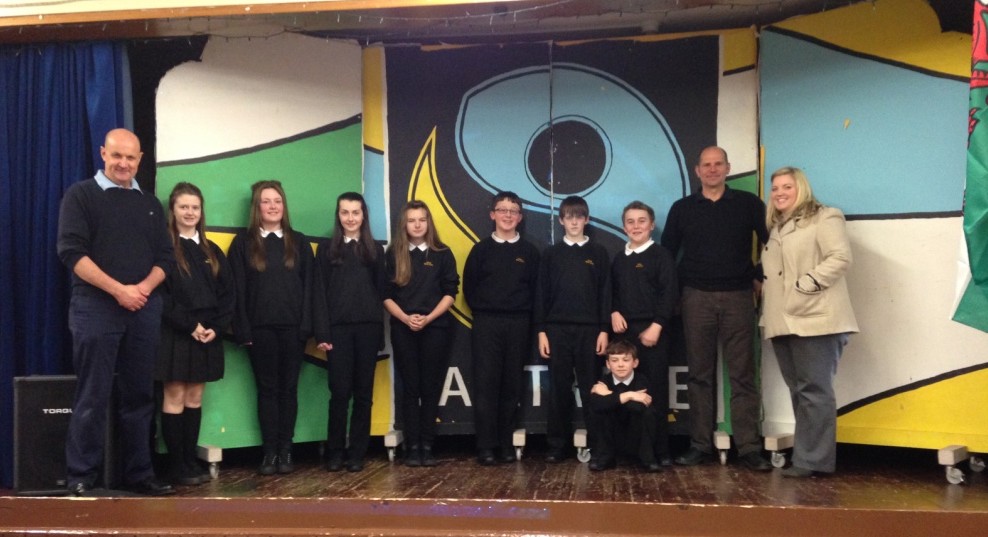Fairtrade fortnight 2014 began early for Koolskools this year with a fantastic Fairtrade Day at St Christopher’s School in Wrexam. Itself a fairtrade School. St Christopher’s played the impeccable host to several other schools in the City – a fairtrade City!
Mike and Andy were able to show the students some of the films from the early February Koolskools visit to India, when they had the pleasure of meeting the management and workers at their factory in Bangalore that is manufacturing the world’s first blazer with fairtrade cotton. They also spent two inspiring days with the fairtrade cotton growersof the Pratina fairtrade cotton co-operative in Odisha, when they were honoured to present scholarships to over 300 children paid for from the fairtrade social premium at a ceremony in the region. Koolskools also showed the Wrexam students the film of Koolskools presenting a computer to Kharsenbanji school in the area.
At the end of the memorable Wrexam Schools Fairtrade Day. The students came up with 10 points of interest and things they would like to do as a result of what they learnt:
- To look for and buy more fairtrade products.
- How easy it is for some unethical factories to deceive people into thinking their employees are treated well when they are not.
- Buying fairtrade products helps farmers.
- The Koolskools donation of the computer to Kharsenbanji school meant so much to them that the community blessed the computer (the first one the school children had ever seen!) in a special ceremony.
- A misconception, fairtrade products, including school uniform, are not always more expensive.
- Child labour is still going on all over the world.
- The introduction of a water well in a remote farming village through the Fairtrade social premium has a positive impact on education, because the children do not have to walk miles to fetch water any more.
- 250,000 Indian farmers suicides in the past 15 years due to fluctuating global commodity prices.
- African students day-to-day concerns are much more serious in general than those of UK students.
- Some Indian (non-fairtrade) cotton farmers receive less than £300 a year for their crop.
Viva Fairtrade in Welsh schools!
